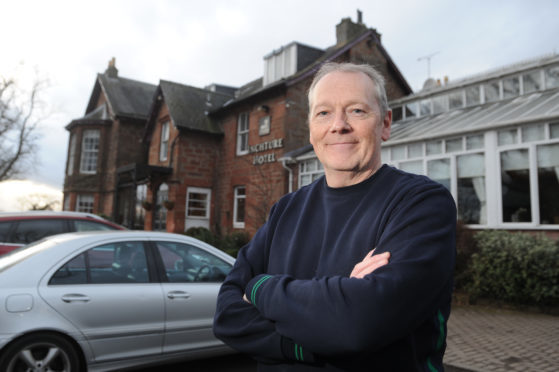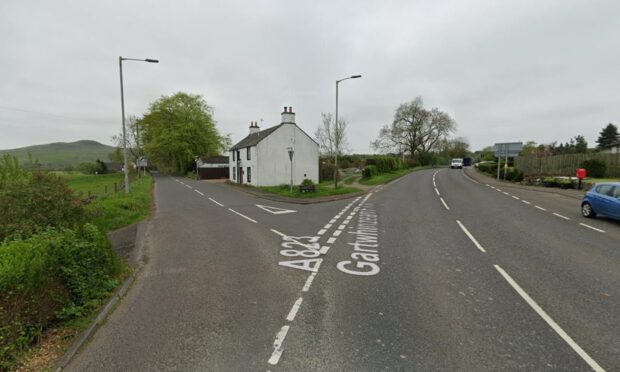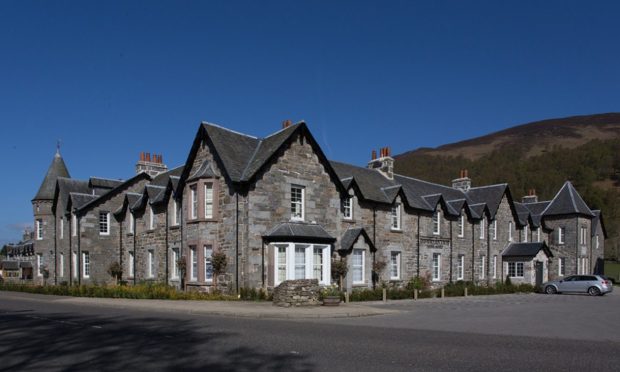A Perthshire hotelier has revealed he nearly had to shut down his long-standing venue after complaints from new neighbours.
The Inchture Hotel has been hosting wedding parties and functions since the 1950s.
But when residents moved in nearby and complained about the late-night music, local licensing chiefs were moved to investigate.
Stef Kelly-Barton said the review — which demanded near silence at night — threatened the future of the hotel. He called for a change in law to further protect established venues.
The Scottish Government has revealed new measures where developers building homes near live music venues will be responsible for ensuring residents are not disturbed by noise.
However, the move impacts on new build homes, rather than new neighbours.
Mr Kelly-Barton said Perth and Kinross Council needed to adopt a “common sense approach”.
After the first complaint, he agreed to have a sound limiter fitted, even though it meant having to cancel several wedding dos where the parties had requested live music at night.
However, his new neighbours complained again, arguing they were still disturbed by noise coming from the hotel.
This time the licensing authority called for zero tolerance on noise.
Mr Kelly-Barton said: “It is just impossible for us to have no noise emissions.
“While the environmental health officers told us they were satisfied with the volume levels, the complainer still wasn’t happy and asked for a second review.”
When the case came before the committee, lawyers for the Inchture Hotel successfully argued that Perth and Kinross Council’s policy was contradictory. It demanded that venue owners should do everything possible to limit noise, but also called for “zero tolerance”.
The panel agreed and dismissed the review. The local authority has confirmed it was now reviewing its policy.
Mr Kelly-Barton said: “We would never have been able to achieve zero volume. We would have had to shut down the function suite, which would effectively mean the end of the hotel.
“We host about 30 to 40 weddings a year and it’s a crucial part of our business.”
The hotel backed the national ‘Agent for Change’ campaign.
“It means that whoever is responsible for a change, will be responsible for managing its impact,” said Mr Kelly-Barton.
“For example, if we installed a huge PA, we would have to make sure it wasn’t a noise problem for people living nearby.
“But it someone moves in next to the hotel, they would be the ones responsible. It’s just a common sense approach.”
A Perth and Kinross Council spokeswoman confirmed that, following the Inchture Hotel case, a review of policy was under way.
She said: “The Board also determined at the same meeting to suspend its current policy on noise for a review.
“This is being covered by the overall review of the licensing board’s policy statement, due to be completed by late 2018.”
She added: “A public consultation on the terms of a new policy statement is expected to take place later this year, which will provide an opportunity for residents and other interested parties to make comment for the board to take into consideration when forming the new policy statement.”
Landmark victory for venues campaign
Scottish housing minister Kevin Stewart said music venues should not “have to make high-cost changes or deal with expensive disputes” because of complaints from new housing developments.
He has written to planning authorities across Scotland, asking them to implement the new regulations immediately.
It followed complaints from venues, mostly in Glasgow and Edinburgh, which were forced to make changes because of new developments.
Mr Stewart said: “The Scottish Government recognises the significant cultural and economic contribution of our music industry.
“It is only right we do what we can to protect the established and emerging musical talent and that is why we are embedding the agent of change principal in our planning guideline.”
Labour councillor Alisdair Bailey, who backed the Inchture Hotel’s campaign, said: “I believe it is unreasonable for a person to be able to move in next door to an existing entertainment venue and force it to incur extra costs or potentially even close down on account of noise levels that were already there for many years prior.”
Geoff Ellis, chief executive of DF Concerts said the government’s announcement was a “huge step in protecting Scotland’s live music scene”.
He added: “It removes a crippling threat that loomed over our music venues for too long.”
UK Music chief executive Michael Dugher added: “This is a landmark victory for all those who fought so hard to safeguard the future of music venues.”









